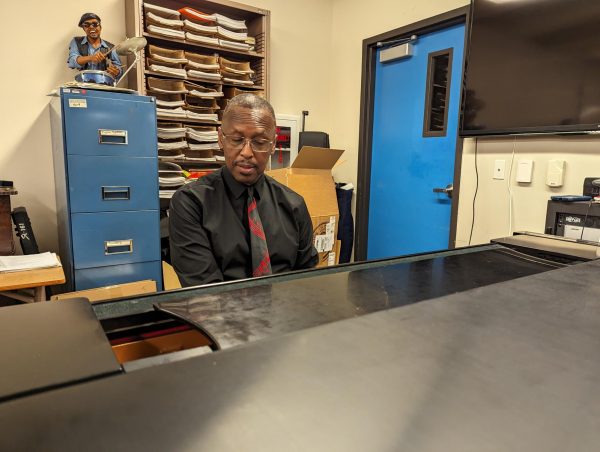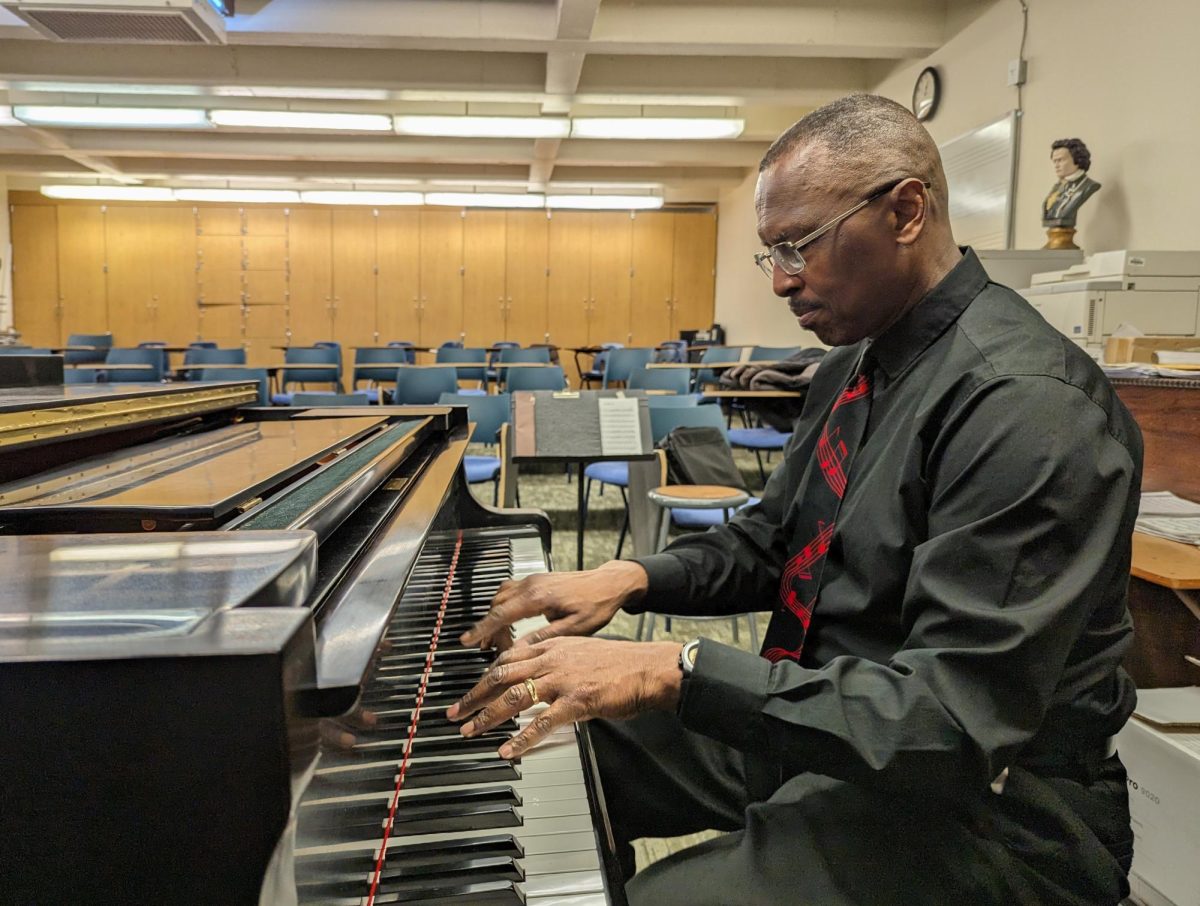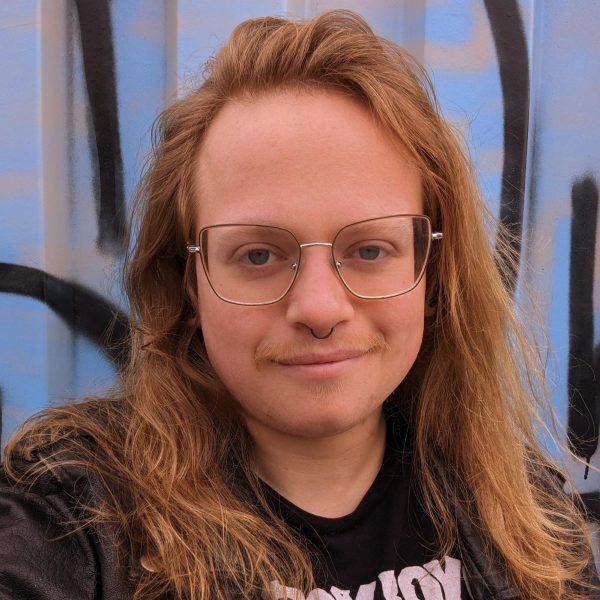Seated at his piano in room G-119, between stacks of papers and cardboard boxes, Glen Pearson effortlessly hammers out snappy blues melodies with the flick of a wrist for his jazz ensemble students. His students know him as the College of Alameda’s (CoA’s) Music Department Chair, and as the pianist for the historic Count Basie Orchestra. But Pearson has never officially announced to his students he’s also a Grammy award-winner.
The Count Basie Orchestra’s latest record, Basie Swings The Blues, netted “Best Large Jazz Ensemble Album” at the 2024 Grammy Awards for a reason: the music shimmies and sways with spirited elegance at every moment. Pearson’s twinkling piano makes up the backbone of some of the album’s biggest bangers, like Evil Gal Blues, Stormy Monday, and its jumping instrumental send-off, Rock Candy.
“I am super thrilled about this achievement as Professor Pearson has been an esteemed colleague of mine at COA for the last 23 years,” Acting CoA President Diana Bajrami wrote in an email to The Citizen. “Professor Pearson has always been an advocate of the music program at CoA and PCCD and continues to be involved in curriculum development and advocacy to improve [it].”
Pearson currently teaches piano, jazz theory, and music appreciation at CoA. He told The Citizen he’s an Oakland local and a San Francisco State University alumnus. His parents were singers, and he started playing piano at just six years old. Inspired by jazz artists like Ramsey Lewis and Ahmad Jamal, he started playing professionally at age 15.
After receiving a Master’s in Music Composition and Performance from New York University, Pearson got a job as a substitute teacher. He now has over 30 years as an instructor under his belt, having held positions at Stanford University and the College of San Mateo.
Before landing a teaching job at the Peralta Community College District, he led the Boys Choir of Harlem in New York for eleven years. Pearson said he saw 98% of his high school aged choir students go on to attend college.
Today, on top of teaching and touring with the Count Basie Orchestra, he also performs in concerts and festivals around the Bay Area.
This year’s Grammy is not the orchestra’s first, but it is the first one since Pearson was recruited for the band five years ago. Count Basie Orchestra Director Scotty Barnhart knew Pearson was perfect for the role after watching him perform once.
“I just did a few little Basie nuances,” Pearson recalled. “And so [Barnhart] looked around and said, ’Okay!’” They exchanged information – the rest is now part of history.
The band is named for its original leader, William “Count” James Basie. According to the orchestra’s website, Basie was born in 1904 to a family of musicians; his mother gave him his first piano lessons. He played background music for silent films during his early career, but his decision to found the eponymous band in 1935 would define his life and legacy. At the first ever Grammy awards in 1959, Basie became the first African American man to win a Grammy thanks to his work with the Count Basie Orchestra.
The website identifies Pearson as one of the newest members of the 18-piece jazz ensemble. Even though Basie died in 1984, a few of Basie’s handpicked members still play and tour with the group to venues around the world.

Pearson said his role at the orchestra is a “phenomenal” connection to Basie’s legacy, though he didn’t rush to tell his students about this year’s Grammy win. He doesn’t want them to think performing on a stage is the only way to have a successful music career. “When you call the bank and you’re placed on hold, that incidental music that you’re hearing is generating income for someone.” Pearson pointed out. “That’s someone’s creative property.”
Outside of teaching, Pearson said he’s collaborating with the University of California, San Francisco on a study examining the effects of musical improvisation on brain function in aging adults. He teaches improvisational basics to cohorts of seniors, while researchers look for cognitive benefits as their skills progress.
“They’ve been doing several phases to test the curriculum,” Pearson recounted. “Now we’re getting ready for the major session of the study – about 16 weeks.”
Managing teaching, performing, and other commitments is “a balancing act” for Pearson.
“But at this junction,” Pearson said he’s “eager to narrow [the] gap” between those seemingly disparate roles. “I’m not just coming academically or based on the book,” he chimed. “[I’m] also speaking from first-hand involvement.”



























